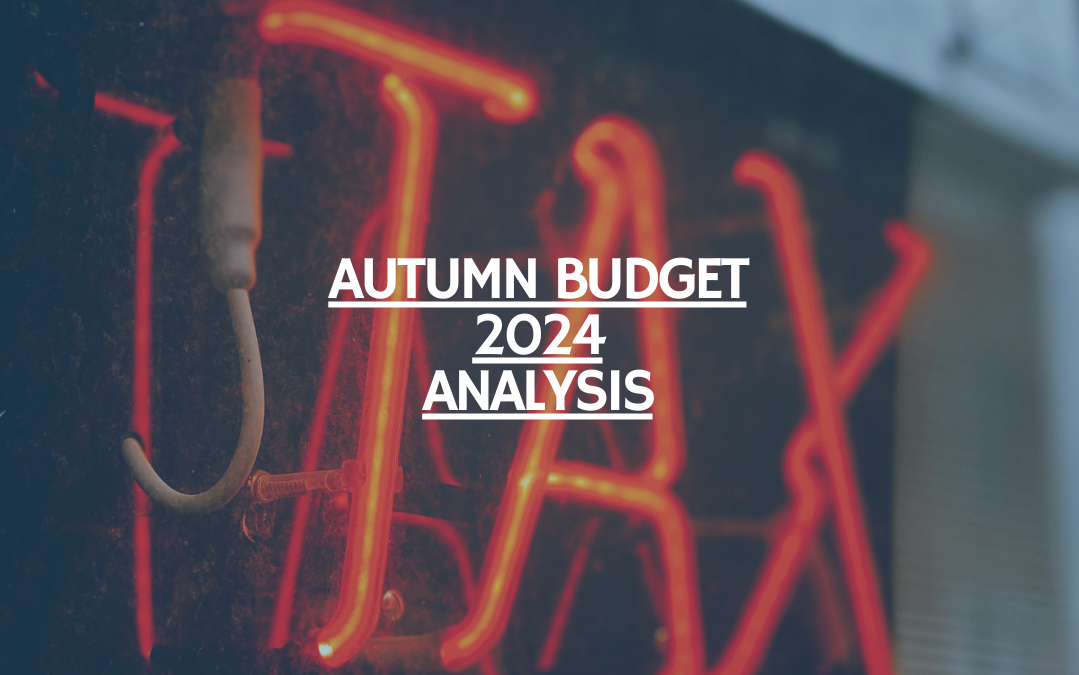Now that the most talked about budget in a generation has concluded, here are our expert insights.
On balance, it was not quite as bad as many commentators thought it could have been. Certainly, there was plenty of pre-budget speculation, with some of the larger changes leaked already. As normal, I have focused on the areas that will impact our clients the most:
Employers
As announced yesterday, Reeves says the National Living Wage for people aged 21 or older will rise by 6.7%, from £11.44 an hour to £12.21, from next April.
In addition, the National Minimum Wage will rise for people aged between 18 and 20 years old, from £8.60 to £10.00.
Apprentices will get the biggest pay increase, with hourly pay increasing from £6.40 to £7.55.
YFT comment:
Increases were expected here and, while the increases are higher than inflation, the increases are not as large as seen in previous years.
Employers NI
From April 2025, there will be a 1.2% increase on employers NI, to 15%. The rate at which the national insurance will start to be paid will also drop, from £9,100 to £5,000
To temper this, there has been an increase in the employment allowance (EA), which reduces NI liability for companies. The EA is increasing from £5,000 to £10,500. Reeves gave the example that this would mean a company could employ 4 full time people being paid the national living wage and pay no employers NI.
YFT comment:
This was perhaps the biggest change in the budget and will hit bigger employers the hardest.
Previously, employers paid employers national insurance when the employee pay hit £9,100 and the rate was 13.8%. The rate has now increased to 15% and the threshold has been reduced to £5,000.
The increase in employment allowance to £10,500 will help offset some of the increase and will provide some protection to smaller employers, but the impact of this will be felt more by bigger employers.
Income Tax
There are no changes to income tax rates.
There will be no extension to the freeze in income tax and National Insurance thresholds beyond 2028.
YFT comment:
The Tories previously announced a freeze to the income tax thresholds until 2028. It was widely speculated that the freeze on thresholds would be extended to 2030, but Reeves has said that this is not the case and after 2028 tax free thresholds will increase in line with inflation.
Capital Gains
This tax is charged on profits which are made from selling assets, such as a second home or investments and shares.
The lower rate of Capital Gains Tax will rise from 10% to 18%, and the higher rate from 20% to 24%.
The capital gains on residential property will remain at 18% and 24%.
YFT Comment:
The rumours were that capital gains tax was going to go up significantly for higher-rate taxpayers, so an increase from 20% to 24% was not as bad as many expected. However, it will now be more expensive to sell shares or other assets.
Business Asset Disposal Relief (BADR)
Reeves announced that the lifetime limit of BADR will remain at £1m.
However, she announced that rates would increase from 10% to 14% in 2025.
She stated that Enterprise Investment Scheme (EIS) and Venture capital trust (VCTs) would continue
YFT Comment:
BADR normally applies when you sell part or all of the shares in your company. There were rumours that BADR (old entrepreneurs’ relief) was going to be removed completely, so the fact that it remains albeit with a slightly higher tax rate is good news.
Inheritance Tax
The IHT threshold of £325k tax free rising to £500k with a residence will remain frozen to 2030.
However, pensions passed on will be subject to IHT from 2027.
Rates
The current 75% discount to business rates for retail, hospitality and leisure sectors – due to expire in April 2025 – will be replaced by a discount of 40% – up to a maximum discount of £110k.
Corporation tax
No changes. The main corporation tax rate remains at 25% for companies over £250k profit.
The current research and development (R&D) scheme stays the same.
Fuel Rates
Fuel duty – frozen for next year.
YFT Comment:
It was widely expected the 5% reduction that the previous government introduced would be reversed, but they are holding fuel duty the same. This is good news for businesses with high distribution costs.
VAT on school fees
The application of VAT on private school fees and the removal of business rates relief has been widely announced and debated previously so no surprises with this one.
If you have any concerns or questions about the budget please feel free to get in touch.

